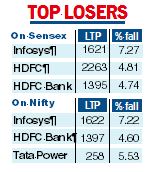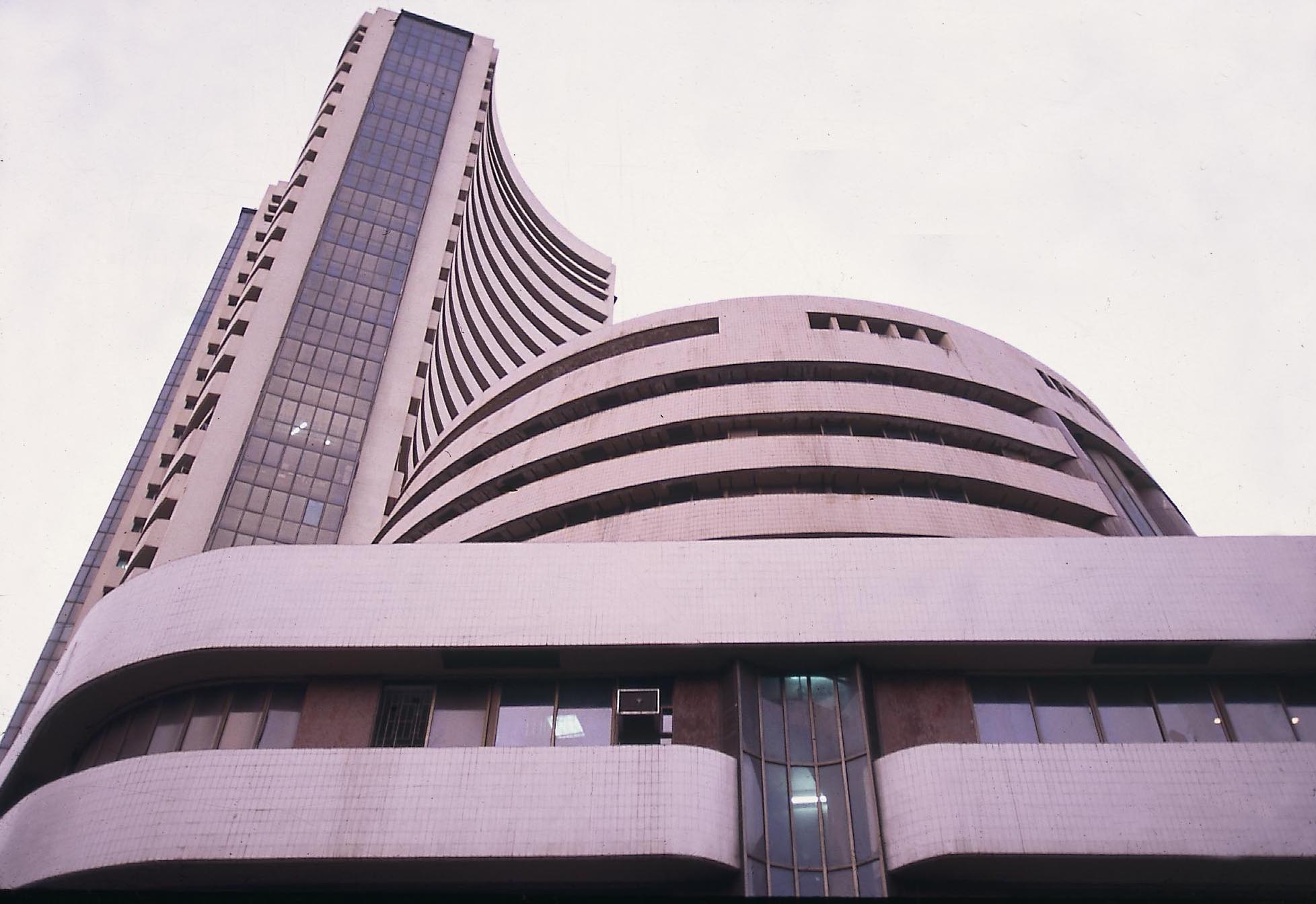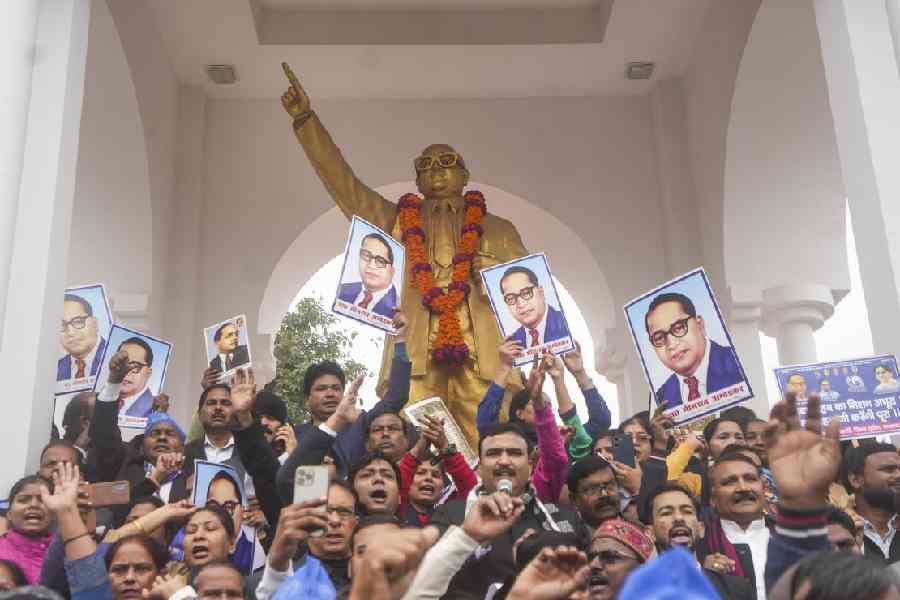The Sensex plunged 1172 points and the Nifty crashed below the 17200-level on Monday, hammered by robust selling in market heavyweights Infosys and HDFC Bank following their below-estimate results.
A weakening rupee and lacklustre macroeconomic data added to the woes, traders said. Investors’ wealth tumbled over Rs 2.58 lakh crore on Monday. The market capitalisation of BSE-listed firms tumbled to Rs 269 lakh crore.
“Sentiments in domestic markets continued to be negative on account of weak global cues, acceleration in WPI inflation and below expectation results from heavyweight Infosys and HDFC Bank,” said Siddhartha Khemka, head —retail research, Motilal Oswal Financial Services Ltd.
Resuming trade after a two-day holiday last week, the BSE Sensex tumbled 2.01 per cent to settle at 57166.74 — marking its fourth straight session of loss. Similarly, the broader NSE Nifty plunged 302 points, or 1.73 per cent, to 17173.65.
Infosys was the top loser in the Sensex pack, plummeting 7.27 per cent. HDFC Bank lost 4.74 per cent.
“We expect further fall in markets in coming days considering the recent rise of Covid cases in India and rising inflation concerns across the globe,” said Rahul Sharma, Research Head, Equity 99.
“The degree of downfall is high because the sector was trading at a high valuation and the risk of a downgrade in outlook has increased,” said Vinod Nair, head of research at Geojit Financial Services.
Global cues
Flagging risks of disruptive spillovers from geopolitical hostilities, an RBI article on Monday said India faces these challenges from a position of strength built on broadened vaccine coverage, financial sector resilience and robust exports.

The article on “State of the Economy”, published in the April 2022 RBI Bulletin, said India has crested the third wave of the pandemic with economic activity returning to speed in several sectors.
These gains are, however, at risk from disruptive spillovers from geopolitical hostilities as increasingly evident in inflation prints, tightening financial conditions and a terms of trade shock accompanied by portfolio outflows.
Spurring private investment remains a key thrust area for sustaining growth on a durable basis.
The RBI said views expressed in the article are those of the authors and do not necessarily represent the opinion of the central bank.
The authors said the near-term global outlook appears grim, caught up in a vortex of geopolitical risks materialising rapidly, strained supply chains and the quickening pace of monetary policy normalisation. India is not immune to these externalities.
The surge in commodity prices is already posing inflation risks, especially surging imports. Rapidly widening trade and current account deficits co-existing with portfolio capital outflows weigh on external sustainability, although the strength of underlying fundamentals and the forex reserves provide buffers.











